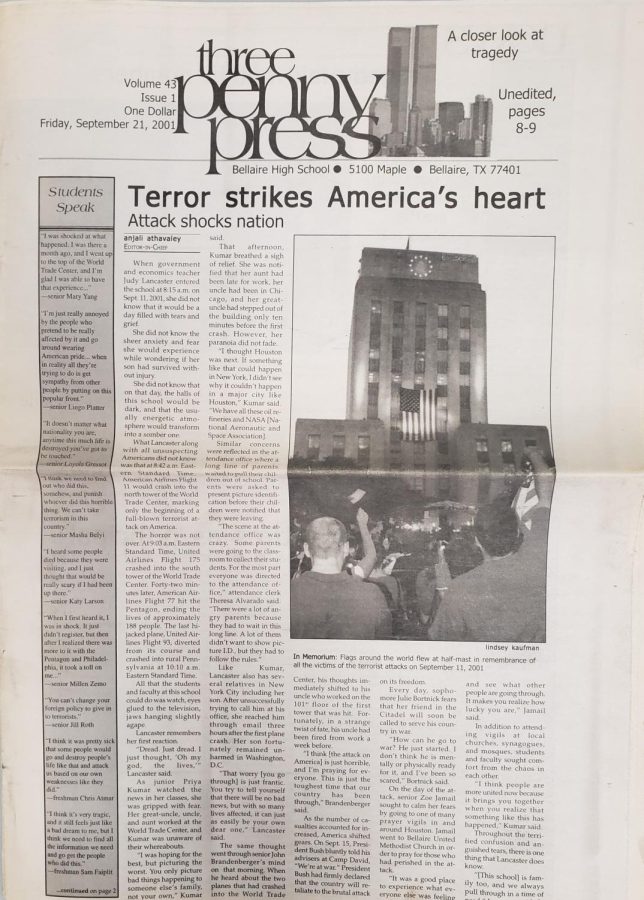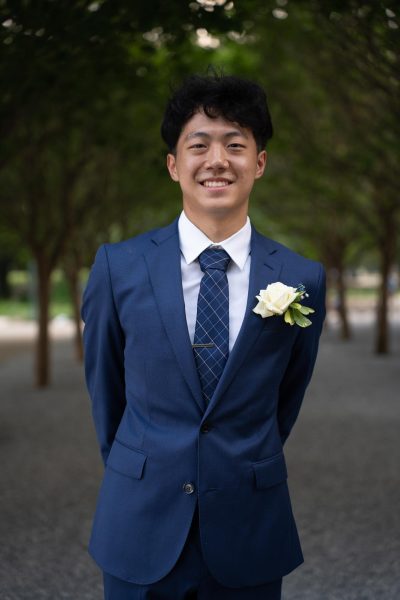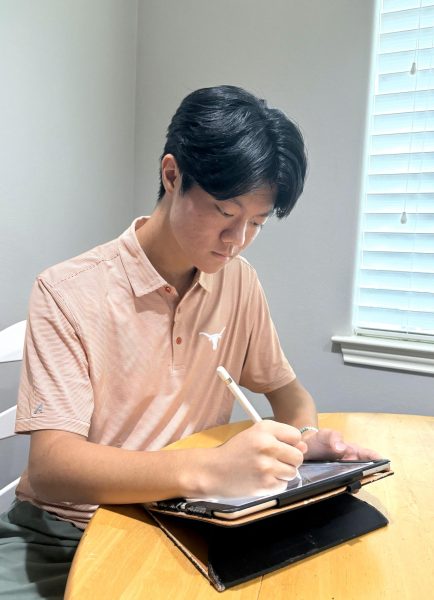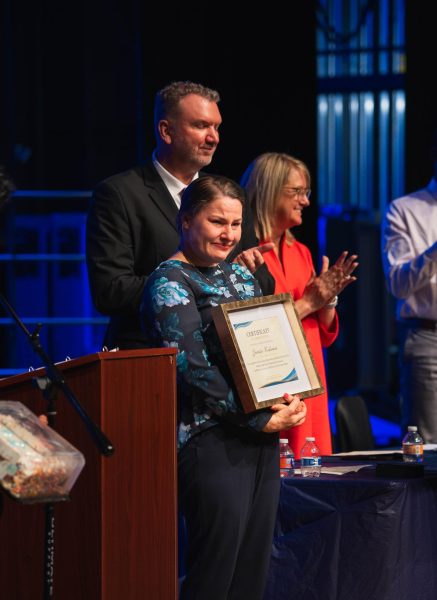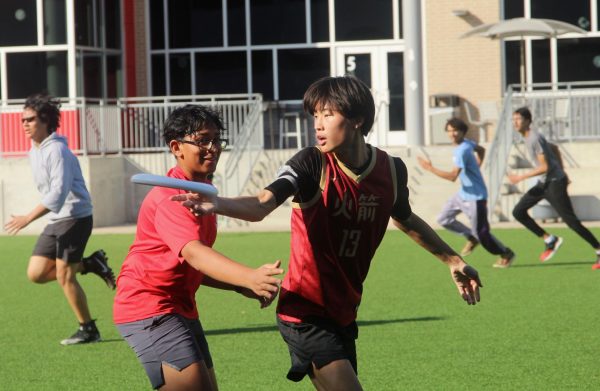Reflecting on 9/11: ‘A day to remember’
Teachers share their 9/11 experiences
On Sept. 11, 2001, two planes flew into the World trade Center’s Twin Towers, a third plane hit the Pentagon in Virginia and a fourth plane crashed in Pennsylvania’s countryside. Soon after, Three Penny Press covered Bellaire students’ and teachers’ reactions in Issue 1 Volume 43.
On this exact day 21 years ago, teachers were coming up and down the hallway looking for TVs that could get outside reception. Those with a TV had the news on. Even to get outside reception, others had to rig their TVs. IB Coordinator and AP Human Geography teacher Ann Linsley had paper clips rigging hers.
Just moments before, German teacher Michael Rossow was driving down South Rice, about to pull into the north parking lot, when he heard on the NPR radio station that a plane had crashed into the World Trade Center’s north tower.
“My first thoughts were ‘Okay, it’s an accident,’” Rossow said. “Some plane lost control of itself.”
Linsley had arrived at school early and was in her classroom watching the news when United Airlines Flight 175 hit the south tower.
“You always have some of those students who you never forget, and Arif was one of them,” Linsley said. “Just as he came in, the second plane hit the other building. We just stood there in awe.”
Teachers and students watched the events unfold from televisions in their classrooms. Math teacher Julia Burnside had brought her geometry class across the hall to Spanish teacher Susan Rushing’s class to watch the news.
“We were all glued to the televisions watching what was happening,” Rossow said.
To Rossow, the twin towers collapse was incredibly shocking.
Throughout the day, parents came to pick up their kids. Rossow believes a third of the students went home that Tuesday. While lessons continued, teachers were told to try to keep everyone calm.
The 9/11 attacks were even more unnerving on a personal level for Burnside. When American Airlines Flight 77 crashed into the Pentagon in Arlington, Va., Burnside’s husband was close by in Fairfax, Va. on a business trip. He could see the smoke from the Pentagon from his hotel.
“Cell phones were jammed, so I wasn’t able to get in touch with him until later that night,” Burnside said. “I was pretty sure he was okay, but it was still reassuring to hear his voice.”
For Linsley, the third plane crash into the Pentagon meant the loss of a friend and an even bigger loss for the geography education community.
Joe Ferguson, director of the Society’s Geography Education Program, worked in the teacher outreach program, taking teachers and students to marine ecosystems to do fieldwork. Ferguson, Ann Judge, three teachers and three students, were headed to the Channel Islands in California on American Airlines Flight 77 when it crashed into the Pentagon.
“They say everyone’s replaceable, but he was not replaceable,” Linsley said. “The potential things that they were going to do under his direction were amazing. National Geographic never really recovered that momentum in geographic education.”
In the days after 9/11, there was much uncertainty.
“People didn’t know how to react,” Linsley said. “We really didn’t know much, so there wasn’t much we could do except pay attention to the news.”
The 9/11 attacks also led Linsley to question holding Bellaire’s annual Yellowstone trip. She looked to Bill Lawson, the past principal, for advice on whether or not to cancel the trip.
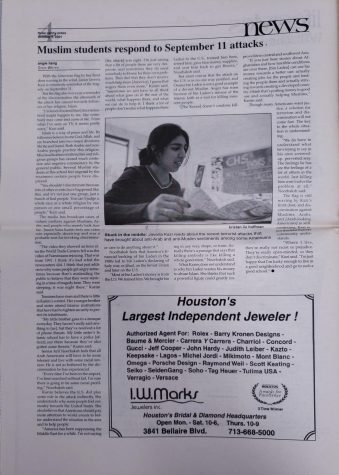
“I remember Mr. Lawson said to me, ‘If you react to the terrorists, you’re only giving in to what they want you to do, and that’s the fear. Just imagine what you would be taking away from those kids who were planning on going,’” Linsley said.
With Lawson’s advice, Linsley took her students on the Yellowstone trip, 10 days after Sept. 11. Although there were a few incidents, like when she snapped at people in a Wyoming Walmart following her Pakistani students, Linsley said it was the right decision to have gone ahead with the trip.
“Mr. Lawson was right,” Linsley said. “If we reacted and did not go because of fear, then those kids would have never gotten to have that experience, and it’s a pretty, pretty awesome experience.”
According to Rossow, coming back to school after 9/11 was normal under the circumstances. There was a greater sensitivity as the attacks affected both students and teachers.
“From that point on, we all knew that things were going to be different,” Rossow said. “It’s kind of like the road was divided between ‘before 9/11’ and ‘after 9/11’. It’s a day to remember.”
Your donation will support the student journalists of Bellaire High School. Your contribution will allow us to purchase equipment and cover our annual website hosting costs.


